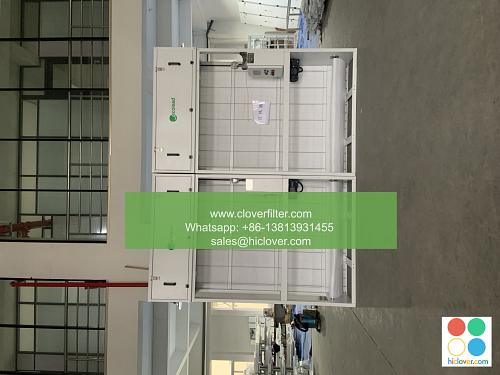The Impact of Air Filters on Energy Consumption: A Review

Air filters play a crucial role in maintaining indoor air quality and reducing the energy consumption of heating, ventilation, and air conditioning (HVAC) systems. In this article, we will review the impact of air filters on energy consumption, highlighting various application areas, including residential, commercial, and industrial settings.
Introduction to Air Filters and Energy Consumption
Air filters are designed to remove particulate matter, gases, and odors from the air, improving indoor air quality and protecting the health of occupants. However, air filters can also have a significant impact on energy consumption, as they can affect the performance and efficiency of HVAC systems. High-efficiency air filters can reduce energy consumption by minimizing the pressure drop across the filter, while low-efficiency air filters can increase energy consumption by reducing the airflow and increasing the fan power required to maintain a consistent airflow.
Types of Air Filters and Their Impact on Energy Consumption
There are several types of air filters available, including fiberglass, pleated, electrostatic, and HEPA filters. Each type of filter has its own unique characteristics and advantages, and can have a different impact on energy consumption. For example, HEPA filters are highly effective at removing particulate matter, but can also have a higher pressure drop than other types of filters, which can increase energy consumption. On the other hand, electrostatic filters can be highly efficient and have a low pressure drop, making them a good choice for applications where energy consumption is a concern.
Application Areas and Energy Consumption
Air filters are used in a wide range of applications, including residential, commercial, and industrial settings. In residential settings, air filters are often used to improve indoor air quality and reduce energy consumption. In commercial settings, air filters are used to maintain a healthy and productive indoor environment, while also reducing energy consumption and minimizing the operational costs of HVAC systems. In industrial settings, air filters are used to remove hazardous particles and gases from the air, while also reducing energy consumption and minimizing the environmental impact of industrial processes.
Energy-Saving Strategies and Air Filters
There are several energy-saving strategies that can be used in conjunction with air filters to reduce energy consumption, including regular filter maintenance, filter replacement, and system optimization. Regular filter maintenance can help to ensure that air filters are operating at peak efficiency, while filter replacement can help to minimize the pressure drop across the filter and reduce energy consumption. System optimization can also help to reduce energy consumption by ensuring that HVAC systems are operating at peak efficiency and that air filters are properly sized and selected for the application.
Conclusion
In conclusion, air filters can have a significant impact on energy consumption, and selecting the right type of filter and maintaining it properly can help to reduce energy consumption and minimize the environmental impact of HVAC systems. By understanding the different types of air filters and their characteristics, and by implementing energy-saving strategies, building owners and operators can reduce energy consumption, improve indoor air quality, and minimize the operational costs of HVAC systems. As the demand for energy efficiency and sustainability continues to grow, the importance of air filters in reducing energy consumption will only continue to increase, highlighting the need for further research and development in this area. You haven’t given me a question or topic to discuss. What would you like to talk about?

